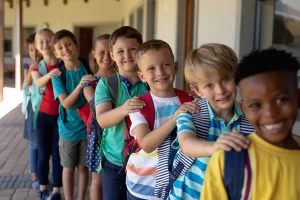 ANOTHER YEAR has come to a close. Another year filled with work, friends (boy-, girl-, and/or platonic), school, family and a myriad of other commitments that take up your time and energy. Some days it feels like you wake up at the crack of dawn, deal with everything on your plate (and often what’s on other people’s plates, too), come home and crawl into bed, only to wake up and repeat the whole thing all over again. Rinse and repeat ad infinitum and before you know it, three months have gone by before you’ve had the time to indulge yourself in anything that remotely interests you outside of those commitments. Hobbies? Leisure? Ain’t nobody got time for that.
ANOTHER YEAR has come to a close. Another year filled with work, friends (boy-, girl-, and/or platonic), school, family and a myriad of other commitments that take up your time and energy. Some days it feels like you wake up at the crack of dawn, deal with everything on your plate (and often what’s on other people’s plates, too), come home and crawl into bed, only to wake up and repeat the whole thing all over again. Rinse and repeat ad infinitum and before you know it, three months have gone by before you’ve had the time to indulge yourself in anything that remotely interests you outside of those commitments. Hobbies? Leisure? Ain’t nobody got time for that.
If reading is your hobby of choice and you just didn’t have enough time this year to crack open as many novels as you would have liked, don’t be too hard on yourself. You’ve got stuff to take care of, and we salute you for handling your business. 2014 is an opportunity to change that, however – to make a little less time for the hustle-and-bustle of everyday life and a little more time to curl up in a comfortable chair with the latest novel that’s captured your attention. In the spirit of that resolution, here are four novels published during this past year you won’t want to miss out on:
The Testament of Maryby Colm Toibin
Technically not a novel, but with the emotive depth and subject matter to span half a dozen of them, this novella holds the prestigious honor of being shortlisted for the 2013 Man Booker Prize for Fiction. If you haven’t already guessed from the title, Toibin’s work deals with the biblical figure of Mary, the mother of Jesus Christ, and gives us an account of the life of Christ, his crucifixion and resurrection, and the early years of the Christian movement from her imagined point of view. Toibin’s protagonist isn’t your garden-variety of Mary that most Christians might be familiar with, however. She’s not Mary, the mother of God. She’s just Mary, a mother – one who feels fear and apprehension when her son starts hanging out with a new “crowd,” skepticism when he starts calling himself the “son of God” and performing miracles she’s never around to witness, fear when he starts attracting the wrong kind of attention, and absolute, gut-wrenching horror when the story reaches the climax we inevitably know is coming. Not to mention the guilt of being unable to save her boy — guilt she lives with for the rest of her life. By giving Mary a voice he imagines she might have had, Toibin humanizes her, makes her accessible, and reminds us that, real or not, at the heart of Mary’s story is loss and separation and grief. To quote her in the novella: “When you say that he redeemed the world, I will say that it was not worth it.” These are words that any mother would say about her child, divine or not.
XO Orpheus: Fifty New Myths edited by Kate Bernheimer
This novel-esque collection of short stories by fifty of contemporary fiction’s greatest and most illustrious authors takes the myths we grew up with and the myths we didn’t and turns them on their heads. Zeus, Medusa, the Coyote Trickster, God and Satan: they all make appearances here, but in forms you’d be hard-pressed to recognize. In the introduction, Bernheimer speaks of how the world’s great mythologies were born from a time when the divine was tangible in everyday life. Industrialization and progress have so widened the gap between man and the divine, however, that man himself becomes the only god he has left. These fifty myths are thus about the human condition in its godlike glory, in all its strength and weakness, its beauty and ugliness.
From the realistic, like Maile Meloy’s Demeter tale about a divorced woman who is forced to split custody of her daughter with her ex, to the outright fantastic, like Ben Loory’s giant Kraken/squid who somehow has to save the world, each of these hand-picked tales reveals a little bit more about the way we deal with the problems that plagued humanity thousands of years ago and still continue to rear their ugly heads in this day and age. The best part? Because this book is an anthology, you don’t have to start from the beginning, or even try to finish it at once. Pick as many (or few) adventures as you like.
The Wicked Girls by Alex Marwood
Hey, all you mystery junkies out there! The Wicked Girls definitely has your names written all over it. The premise goes like this: Someone in Whitmouth, an English seaside town, is going around killing young girls in the grisliest ways imaginable. Investigative journalist Kirsty Lindsay is sent to cover the story, but runs into a woman named Amber Gordon, someone from a past she wants nothing more to forget about and someone who might be connected to the events going on in Whitmouth. Through a series of flashbacks interspersed with the contemporary plot, Marwood unravels the story of a past crime that continues to haunt these women who are ordered to be strangers. The killing spree that threatens to consume the town continues, however, and Marwood ties it up it with an ending you’ll never see coming.
Besides showcasing a brilliant mystery plot, this debut novel touches on deeper themes like abuse, abandonment, and how differences in class and upbringing can shape the lives of young girls. What adds to the appeal of this novel is the feeling that it seems like it could be based on true events, even though it’s never stated that it is. We say this because Alex Marwood isn’t really the name of this novel’s author: it’s the pseudonym of a British journalist who wishes to remain anonymous. Like they say in mystery novels, the plot thickens!
We Need New Names: A Novel by NoViolet Bulawayo
Another contender for the 2013 Man Booker Prize for Fiction, Zimbabwe-born Bulawayo’s debut novel recounts a semi-autobiographical story in two parts. The first half tells of ten-year-old Darling’s abandonment by her father and her subsequent life in a shantytown in Zimbabwe during the Mugabe regime. The second half flashes forward to Darling in America, where she manages to join her aunt in Detroit, Michigan (which she tellingly pronounces “Destroyed Michigan”). Darling’s story, in its essence, is about the tragedy of abandonment, forced migration, displacement and the long-lasting effects those traumas have. Having had a decent life before her father is forced to leave his family to search for work, Darling now only knows abject poverty and hunger. She is exposed to a world of homelessness, of AIDS epidemics, of rape, and of betrayal by international aid charities, a world which is abandoned by Zimbabwe’s government at large.
Her move to Detroit when she is forced to abandon Zimbabwe herself doesn’t do much to ease the situation; true, she’s no longer living on the streets and has more than enough food to eat, but “find[s] the food does nothing for [her], like [she] is hungry for [her] country and nothing is going to fix that.” Bulawayo’s story asks the reader to ponder the importance of “home,” and to imagine what it would be like to be stuck between two worlds without a home in either.
There you have it, readers! Here’s to happy reading and a happy new year!
















